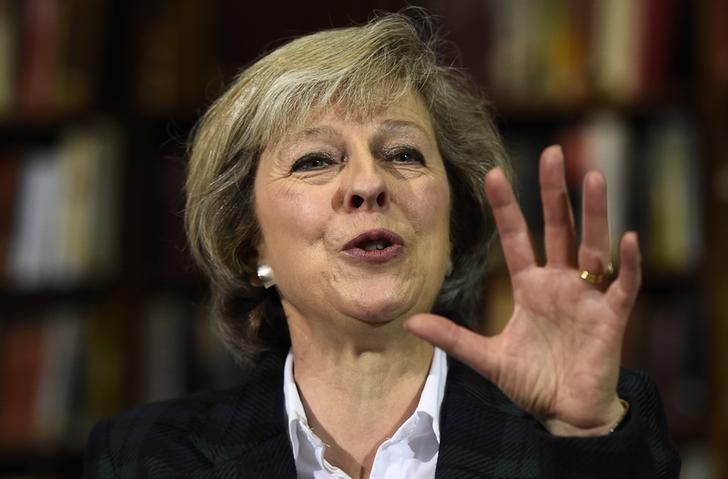UK Prime Minister Theresa May officially seeks getting big business behind her Brexit strategy on Monday, toning down plans to put workers on company boards and promising to spend billions of pounds on science, technology and research.
In return, May told business leaders at a conference hosted by the Confederation of British Industry, that they needed to keep up their own investment, embrace corporate governance reforms and help spread prosperity across the country.
The strength of Britain’s $2.3 trillion economy was thrown into doubt following the shock vote to leave the European Union, handing May the tasks of winning back an electorate fed up with the status quo and persuading businesses not to move abroad.
Courting the support of business leaders who have bridled at her sometimes combative approach on issues such as tax avoidance and executive pay, May said that Britain’s workers had demanded change by voting to leave the EU.
“The reputation of business as a whole has been bruised,” May said, citing research showing only 35 percent of low income workers trust business. “The behaviour of a limited few has damaged the reputation of the many. And fair or not, it is clear that something has to change.”
May said a decision by Facebook to expand its UK presence by hiring 500 new workers, on the heels of a decision by Google to build a new hub in London, was a vote of confidence, but said businesses still had to do more to prove a sceptical public that capitalism worked for them.
Despite her tough tone, May watered down one of the central proposals of her campaign to take over from the former prime minister, David Cameron, in July: a plan to put employees on company boards.
“While it is important that the voices of workers and consumers should be represented, I can categorically tell you that this is not about mandating works councils, or the direct appointment of workers or trade union representatives on boards,” May said.
She said the government was committed to worker representation but open to different ways of doing it, easing fears among some business leaders and lobbyists that the government could legislate to enforce mandatory representation.
One FTSE 100 chief executive, who asked not to be named, told Reuters on Monday they welcomed the change in tone and said the government may have realised that a rigid approach was too difficult to introduce.
However, trade unions said May was betraying her promise.
“This is not the way to show that you want to govern for ordinary working people,” said Frances O’Grady, head of unions’ body the TUC.
